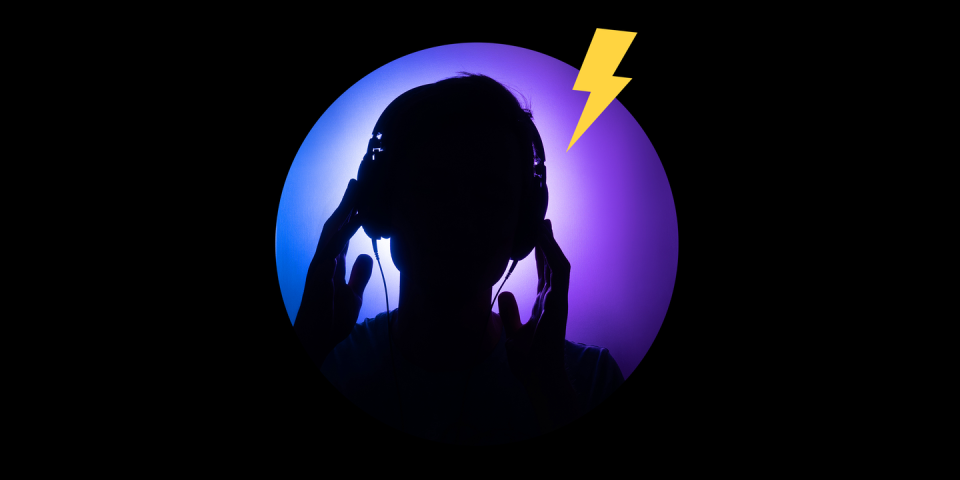'Yes, I Like Listening To Sad Songs Even When I'm In A Great Mood'

Sabrina Talbert, a WH editorial assistant, says others associate her with her love of melancholy music. Joke’s on them, though, because her preference is a serious wellness booster.
If you were to ask my friends to create a playlist for me, there would be a lot of slower tunes on the list. In fact, when I first met my current neighbor and we got around to talking about our music tastes, I was jokingly labeled “Sad Girl.”
He couldn’t possibly understand how, even when I was in great spirits, I enjoyed listening to softer tracks. Granted, he was a lover of all things pop, and while I also like that genre, the idea of bumping, high-energy music every time I had a good day seemed exhausting.
Sad songs bring me a sense of calmness, which I’ll gladly take over energizing upbeat music on most occasions. Turns out, it’s not uncommon to experience feelings other than sadness while listening to sad music.
After participants in one study (conducted at the University of California) listened to sad music, feelings of sadness were ranked the highest. However, other feelings, such as nostalgia, peacefulness, and wonder, were present as well. Additionally, certain personality traits, such as empathy and openness to experiences, were linked to liking gloomy music
So what causes people to feel a range of emotions in response to something inherently, well, sad?
The explanation is fascinating. “When you listen to sad music, your brain is tricked into thinking you’re about to deal with trauma,” says Bethany Cook, PsyD, a music therapist, licensed clinical psychologist, and adjunct professor at the Illinois School of Professional Psychology.
This causes the release of a hormone called prolactin, which helps control and curb the grief response. When trauma doesn’t occur, your body is left with extra hormones. “Because there isn’t some catastrophe, you have all this prolactin chilling out in your brain and body, and it gives you a very calm, cathartic feeling,” says Cook. This is also why people feel better after listening to sad music when they’re truly sad.
Emotional validation plays a powerful role in how downer music is perceived, too, because unlike a convo with a friend, it’s impossible to have a dialogue while listening—all you can do is process it, adds Cook. And in doing so, you feel that someone out there sees you.
So whether you listen to somber songs because it helps you get through hard times or because you simply enjoy them, like me, just know that your body is going through a pretty genius biological process that ultimately works for your safety, happiness, and overall well-being.
This article originally appeared in the December print issue of Women's Health.
You Might Also Like

 Yahoo Movies
Yahoo Movies 